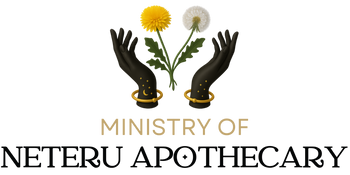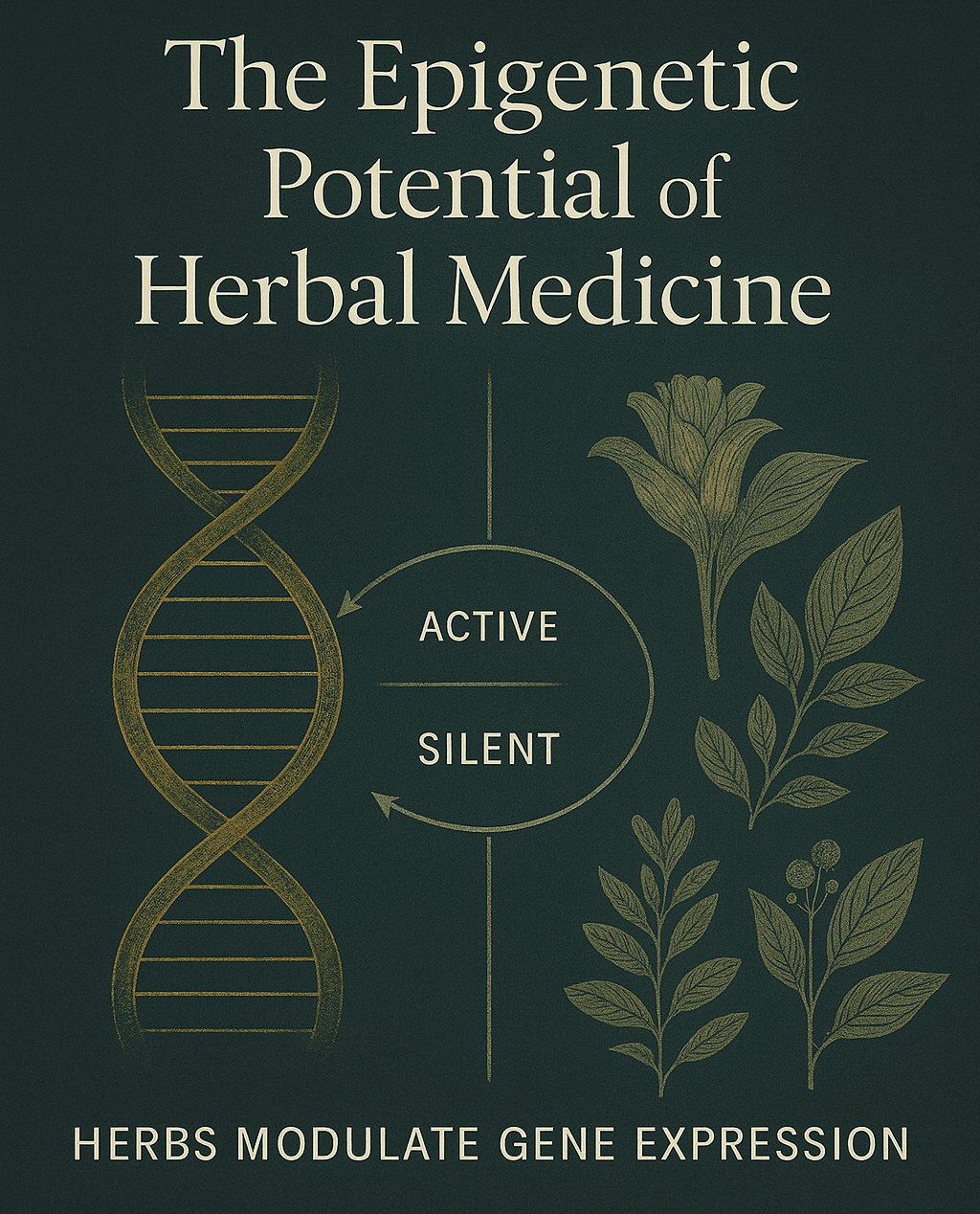Introduction
In recent years, the science of epigenetics has revealed that our genes are not rigid scripts dictating destiny, but rather dynamic texts influenced by lifestyle, diet, and environment. Epigenetics refers to changes in gene expression that occur without altering DNA itself, through processes like DNA methylation, histone modification, and microRNA regulation. Intriguingly, many herbs long valued in traditional medicine are now being studied for their epigenetic influence, offering new pathways for prevention and healing.
This merging of ancestral plant wisdom with molecular biology opens the door to a deeper understanding of how plants communicate with our very blueprint of life.
Herbs as Epigenetic Modulators
Curcumin (Turmeric)
Curcumin, the golden compound in turmeric (Curcuma longa), has been shown to influence DNA methylation and histone acetylation, both of which regulate how genes are expressed. In studies, curcumin has been linked to the suppression of cancer-promoting genes while enhancing protective pathways.
Green Tea Polyphenols
Epigallocatechin gallate (EGCG), a major catechin in green tea, demonstrates powerful epigenetic effects. Research shows EGCG can reactivate silenced tumor suppressor genes, alter histone acetylation, and modulate pathways related to inflammation and aging.
Resveratrol (Grapes, Berries)
Resveratrol, often associated with red wine, activates sirtuins, a family of proteins that regulate aging, metabolism, and cellular repair. This link between herbal compounds and longevity genes highlights how plants may extend vitality at the molecular level.
Sulforaphane (Cruciferous Vegetables)
Although not a classic “herb,” sulforaphane from broccoli sprouts demonstrates epigenetic modulation with implications for detoxification, hormone balance, and even neuroprotection.
Implications for Healing
Epigenetics offers a profound shift in how we view herbal medicine. Instead of acting merely as symptom relievers, plants may reprogram gene expression patterns that influence long-term health trajectories.
For example:
· In cancer prevention, herbs may downregulate oncogenes while upregulating tumor suppressors.
· In neurodegenerative conditions, plant compounds may enhance protective genes involved in synaptic health.
· In stress and trauma recovery, herbs like ashwagandha and holy basil may reduce epigenetic markers associated with chronic cortisol exposure.
This doesn’t make herbs a substitute for medical treatment, but it underscores their potential as allies in preventive and integrative medicine.
Bridging Science and Tradition
Many ancestral traditions have long claimed that plants could “awaken dormant potential” or “restore ancestral memory.” Modern epigenetics provides a biological framework for this wisdom. By modulating which genes are “on” or “off,” plants truly influence the story our bodies tell, sometimes across generations. Epigenetic changes can be heritable, suggesting that herbal interventions may ripple into family lineages, echoing traditions where plants were used to protect not just the individual but the community and descendants.
Conclusion
The epigenetic influence of herbs highlights a sacred partnership between humans and plants. This partnership is not simply about symptom management but about shaping long-term health, vitality, and resilience. By weaving ancestral practices with molecular science, we begin to see how herbs act not just on the body, but on the language of life itself.
For those seeking to explore this intersection more deeply, Neteru Apothecary offers a range of herbal formulations rooted in both science and tradition. Whether you are curious about epigenetic-supportive herbs like turmeric, green tea blends, or adaptogens, you can connect with us directly:
👉 Schedule a Consultation
👉 Explore Our Products
👉 Visit Our Website
References & Further Reading
1. Curcumin and epigenetics – PubMed Central
2. Green tea polyphenols in gene regulation – PubMed Central
3. Resveratrol and sirtuin activation – ScienceDirect
4. Sulforaphane epigenetic modulation – Nature Reviews

